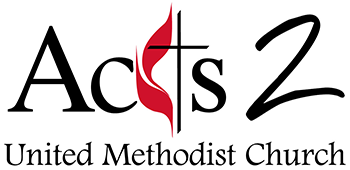At Easter, we point to the cross and say, not even a blood-stained murder scene is beyond the love and power of God to turn evil to good. In this Easter sermon, Dr. Mark Foster shares about the hope Jesus' resurrection brings.
On his journey toward the cross, Jesus' words and actions revealed who he truly is, and they exemplify for us the essential practices at the core of following him: prayer, reading scripture, serving others, giving, and sharing. Dr. Mark Foster shares what the final days of Jesus' life teach us about who he is and what it means to follow him.
What will you share in this crisis, faith or fear? When the story is told about how you led your family through this time, will it be a story you want told? Will it be a story where you shared your faith, or shrank in fear? We have the opportunity to share hope in the midst of crisis. In this sermon, Dr. Mark Foster shares how.
Following Jesus is more than just not doing anything wrong. Following Jesus is more than your individual salvation. Following Jesus includes action like providing food, clothing, health care, and education for those who need it. This is what it means to love our neighbors as ourself. This may be both inconvenient and costly. It was for Jesus. Dr. Mark Foster shares “How to Help” through sharing the words of Jesus and the witness of the church.
Worship is not something we watch or attend. Worship is something we do! Worship is our response to God’s invitation. In this sermon Dr. Mark Foster shows us how worship and prayer are foundational practices of the Christian faith. Learn a simple hand prayer you can share with your children or grandchildren. This message is one you can put into practice today.
The #1 thing you can do for the health of your marriage is to become healthy yourself. So, how can we help one another become emotionally healthy? Dr. Mark Foster shares three questions to consider before getting married and biblical guidance for loving well.
The Bible is full of real people with real relationship challenges we can all learn from if we are willing to see ourselves in the stories of the people of God. Dr. Mark Foster explains the four relationship challenges from Judges 16 as we learn what NOT to do from Samson and Delilah.
C.S. Lewis wrote, “There are only two kinds of people in the end: those who say to God, ‘Thy will be done,’ and those to whom God says, in the end, ‘Thy will be done.’ All that are in Hell, choose it.” In this message, Dr. Mark Foster looks at God’s will versus Jonah’s will when it comes to the people and animals of Nineveh. Much of knowing what to do starts with knowing who you are and who God is.
"Whenever we find our religious life is making us feel that we are better than someone else, I think we may be sure that we are being acted on, not by God, but by the devil." C.S. Lewis
God is ready to forgive. Are you?
In “Let's Try This Again,” join Dr. Mark Foster as he takes a look at the life of Jonah as an example of what God does, how God does it, and how to know if it is truly God or not.
The good news is we have a God of second chances and we have thousands of years of brothers and sisters in the faith leading us to the way that leads to life.
Discernment performed alone can become delusion.
How can you tell if the voice in your head is from God or from a dark place?
In “Rock Bottom,” Dr. Mark Foster takes a look at the life of Jonah as an example of what God does, how God does it, and how to know if it is truly God or not.
The good news is we have a God of second chances and we have thousands of years of brothers and sisters in the faith leading us to the way that leads to life.

